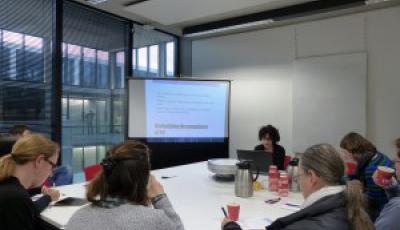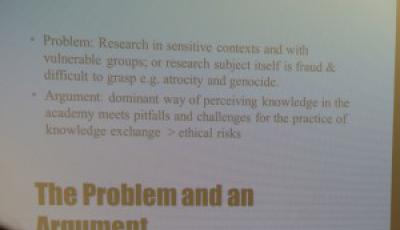Knowledge Exchange Revisited: Knowledge Is Not Neutral and Neither Are We
Posted
Time to read

As Julia pointed out, however, we should, perhaps, be rather more circumspect about what exactly ‘knowledge exchange’ means. Whose knowledge is being traded and to what end? Which groups are party to the discussion, and what is done with the information that is swapped? Above all, she asked, what are the ethical guidelines framing such discussions?
Knowledge exchange is now one of the cornerstones of the ESRC. Those looking for funding from the ESRC must, therefore, describe how their research findings will both be communicated but will also be shaped by others outside the academy. Some kind of exchange is fundamental to ‘impact’; that other term which is increasingly part of discourses surrounding the academy.

For a discipline like criminology, where much of the research we conduct is with marginal and stigmatized population, do we need to be more careful than most in what we exchange and with whom? What are some of the risks in communicating our findings? What are some dangers in designing projects with agents of the criminal justice system?
In each of the previous seminars this term, we have discussed at some length the difficulties faced by academic researchers in gaining access to prisons and the police alongside strategies of overcoming these barriers. In each session we considered the varying ways of expressing research plans and disseminating findings, with practitioners and academics being quite clear that methods and techniques vary depending on the audience. Without a clear ethical steer about such matters, we may find ourselves in the position of holding back or communicating too much in the pursuit of impact.
As Julia made clear, exchanging knowledge is never neutral. It may not always be benign, and we should not assume we can control its effect. Under these circumstances, we need to spend more time considering the pitfalls and benefits of working collaboratively with groups outside the academy. It is unlikely that this requirement will disappear, and it is right, to some extent that funding bodies demand it. Yet, as Julia suggested, we should not be naïve or careless; knowledge is not neutral, and neither are we.
Share